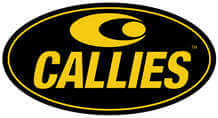
MS Access As A Dev Tool
Access continues to be a highly efficient tool for business database development.
The Best Microsoft Access Database Solutions owner, consultant, and principal programmer is Alison Balter - a recognized expert Microsoft Access consultant. Alison is the author of 15 Microsoft Access training books and videos. She is a frequent guest speaker at MS Access conferences and has developed hundreds of applications for businesses of all types.
We know your business data is important; we listen to your concerns, ask questions, and gather information from all stakeholders. We discuss your needs and requirements for your database. We find out what you want, why you need various features so we can obtain as much information as possible. Once we have the information we need, we work with you to design the proper database architecture, plus the dashboards, the questions (queries), forms, and reports you need for an excellent database system.

We also create websites designed for speed to display your data accurately, using ASP.NET technology. Fast, secure, and robust, our ASP.NET websites and web applications give you true business tool for finding and displaying information dynamically on the web.






Access continues to be a highly efficient tool for business database development.

How to create a Microsoft Access application with some unique tips and tricks.

Your Access developer near me has some great info for you about using Access efficiently.
Call MS Access Solutions at (323) 285-0939 for your FREE consultation.
The material below originally appeared in Alison Balter's book Mastering Microsoft Office Access 2007 Development and is reprinted here with the author's permission. There may be references to "Figures" or "Chapters" that are not reprintable and are not used on this page.
Just as it's useful to document any program, it's also useful to document what you're trying to do in your macro. These comments can be used when you To add a comment to a macro, click in the Comment column of the macro and begin to type.
Although Access doesn't offer very sophisticated tools for testing and debugging your macros, it does give you a method for stepping through each line of a macro:
Learning about stepping through a macro is easiest when you experience it firsthand. To begin, open the mcrPersonalInfo macro that you created in the previous Try It example in Design view. Click the Single Step button in the Tools group of the Design tab. Run the frmPersonalInfo form, also created in the previous example. Select a gender and type in a birth date. Click the Check Gender command button; this should invoke the Macro Single Step dialog box. Step through the macro one step at a time. View the Macro Name, Condition, Action Name, and Arguments for each step. Change the gender and run the macro again. Carefully observe how this affects the macro's execution.
Now click the Check Birth Date command button. Step through the macro one step at a time, viewing whether the condition evaluates to True or False. After the macro ends, try entering a different value for the birth date. Step through the macro again and carefully observe whether the condition evaluates to True or False for each step.
As you can see, although Microsoft supplies some tools to help you debug your macro, you will probably agree that they are limited compared to the tools available with the VBA debugger. (See Chapter 16, "Debugging: Your Key to Successful Development.") That's one reason why many developers prefer to develop applications by using VBA code.
The Single Step button in the Tools group of the Design tab is a toggle. After you activate Step Mode, it's activated for all macros in the current database and all other databases until you either turn off the toggle or exit Access. This behavior can be quite surprising if you don't expect it. You might have invoked Step Mode in another database quite a bit earlier in the day, only to remember that you forgot to click the toggle button when some other macro unexpectedly goes into Step Mode.
The preceding material originally appeared in Alison Balter's book Mastering Microsoft Office Access 2007 Development and is reprinted here with the author's permission.
When you need a Microsoft Access programmer for your Richmond, VA business, call MS Access Solutions at (323) 285-0939. We have over 25 years experience programming Microsoft Access database applications.
At MS Access Solutions, we create custom database applications for a diverse range of industries. Our expertise spans healthcare organizations including medical clinics and hospitals, government agencies at federal, state, and local levels, and even the U.S. military. We've developed specialized solutions for educational institutions like universities, junior colleges, and school districts, as well as agricultural businesses, employment agencies, and human resources departments. Our client portfolio also includes insurance corporations, insurance agencies, and oil and gas companies.
We work with both complex and small Access database projects. We are very experienced at advanced Access and SQL Server database programming for enterprise-level systems Whether you need us to fix damaged Access database forms, troubleshoot MS Access reports, repair broken macros, or debug VBA code, we deliver solutions that keep your business running smoothly. Our approach combines technical expertise with practical business understanding, ensuring your Access database applications function flawlessly.
More information about our programming services is available on the Microsoft Access programmer Roanoke, Virgina web page.

